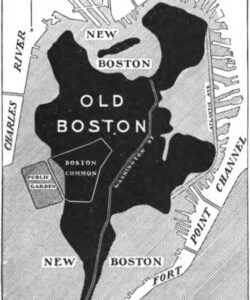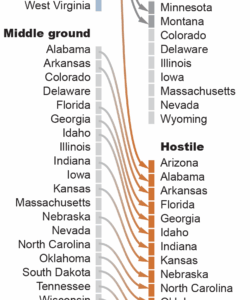Have you ever paused to consider the rich tapestry of last names that populate our world? Each one is a tiny historical marker, a whisper of ancestry, a clue to where our families might have come from or what they might have done. From the bustling streets of modern cities to quiet village lanes, these names carry stories, sometimes spanning centuries and continents, connecting us to a lineage that predates our own memories. It’s a fascinating journey to delve into the origins and meanings behind them.
When we focus on a specific prefix, like “ap”, a whole new dimension of exploration opens up. These particular last names often have distinct geographical or linguistic roots, immediately hinting at certain parts of the world or historical periods. Understanding these origins can shed light not just on personal heritage, but also on broader patterns of migration, occupation, and societal structure throughout history. It is a quest for knowledge that enriches our understanding of identity itself.
So, if you’re curious about the fascinating world of patronymics, topographical markers, or occupational descriptors, and especially if you’re looking for last names that start with ap, you’ve come to the right place. We’re about to embark on a delightful exploration of these unique surnames, uncovering their stories and the people who carried them. Prepare to be intrigued by the diversity and depth these names reveal.
Exploring Last Names Beginning With Ap
-
Apcar
The surname Apcar is predominantly of Armenian origin, often found among the Armenian diaspora. It typically signifies “son of Gar”, where “Gar” itself is a personal name with ancient roots. This patronymic structure is very common in many cultures, indicating lineage directly from a specific male ancestor.

Throughout history, individuals bearing the Apcar name have contributed significantly to various fields, reflecting a heritage of resilience and cultural preservation. Its prevalence in diverse regions today speaks to the global spread of Armenian communities over centuries, each carrying a piece of their linguistic and historical identity with them.
-
Apfel
Apfel is a surname of German and Ashkenazi Jewish origin, directly translating to “apple” in German. This name could have originated in several ways; it might have been an occupational name for someone who grew or sold apples, or perhaps a topographical name for someone who lived near an apple orchard. It’s also possible it was an ornamental name, chosen for its pleasant sound and association with fruitfulness.
The simplicity and directness of Apfel make it a charming and recognizable surname. Its presence in both German-speaking regions and Jewish communities highlights shared linguistic roots and historical interactions. Families bearing this name often carry a connection to agricultural heritage or simply to the symbolic beauty of the apple.
-
Appleton
Appleton is a well-known English surname with clear topographical origins. It literally means “apple town” or “settlement where apples grow”. This suggests that the original bearers of the name likely hailed from one of the many places in England named Appleton, indicating their geographical association to a specific locale.
The name points to a time when surnames were often derived from one’s place of residence, particularly if that place had a distinctive feature like an apple orchard. Over the centuries, individuals from these Appletons would have carried the name as they moved, establishing new branches of the family and spreading this pleasant, nature-inspired surname.
-
Appleby
Similar to Appleton, Appleby is another English surname with a strong geographical connection, particularly to a town in Cumbria, England. The name means “apple farm” or “apple settlement”, combining “apple” with the Old Norse word “býr” for farm or village. This reflects the influence of Norse settlers in parts of England.
The blend of Old English and Old Norse elements in Appleby tells a story of cultural interaction and settlement patterns in early medieval Britain. It suggests a history rooted in the land, likely associated with farming or managing orchards. This name has traversed generations, carrying with it echoes of pastoral English landscapes.
-
Applegate
Applegate is an English surname that derives from a topographical description, meaning “at the apple gate” or “at the gate of the apple orchard”. This would have referred to someone who lived near a prominent gate leading into an apple orchard, a notable landmark in their community. It perfectly illustrates how everyday surroundings could become identifiers.
The specificity of “Applegate” provides a vivid picture of medieval life, where people’s addresses were often their surnames. It speaks to a time before formal street numbers, relying instead on natural or man-made features in the landscape. Families carrying this name share a lineage possibly tied to specific plots of land or points of passage.
-
Apgar
The surname Apgar is a North American variant, primarily of Dutch origin, often considered an Americanization of the German surname “Abgar” or “Appert”. It’s a fascinating example of how names can evolve and adapt across different languages and geographic locations, especially as families migrated and settled in new lands.
While its exact etymology can be debated, it likely stems from a personal name or a short form of a compound name. The Apgar name is particularly recognized in American history, often associated with contributions in various fields, showcasing a legacy that has developed distinctively on the North American continent.
-
Apodaca
Apodaca is a surname of Spanish origin, specifically from a place name in the Basque Country of Spain. This means the original bearers of the name likely came from a town or area called Apodaca. Place names as surnames are extremely common, linking families directly to their ancestral lands and villages.
As a name with roots in the Basque region, Apodaca carries a cultural richness and history distinct to that vibrant part of Spain. It has traveled extensively, particularly to Latin America and the United States, with the waves of Spanish exploration and settlement, establishing itself as a recognized surname in many Spanish-speaking communities.
-
Aponte
Aponte is a surname of Spanish and Portuguese origin, which is believed to be topographical, referring to someone who lived “at the bridge” or “by the bridge”. The word “ponte” means bridge in both languages, and the “a” prefix denotes “at” or “by”. This indicates a key feature of the landscape near the family’s original home.
The significance of a bridge in ancient and medieval times cannot be overstated, as they were crucial for trade, travel, and defense. A family named Aponte would have been closely associated with such an important structure, perhaps even being its guardians or residents nearby. It’s a name that evokes journeys and connections.
-
Apostol
Apostol is a surname of Greek origin, directly derived from the Greek word “apostolos,” meaning “apostle” or “messenger.” This name has strong religious connotations, likely given to someone who played a significant role in the church, perhaps as a missionary, or was associated with an apostolic tradition or belief.
Common in countries with strong Orthodox Christian traditions, such as Greece, Romania, and other Eastern European nations, Apostol carries a deep spiritual and historical weight. It’s a name that speaks to faith, devotion, and the spreading of important messages, connecting bearers to a long line of spiritual heritage.
-
Appiah
Appiah is a prominent surname, particularly common in Ghana, West Africa, and among the Akan people. It is a traditional Akan day-name, typically given to males born on a Thursday. In Akan culture, children are often named according to the day of the week they were born, alongside other personal names.
While initially a given name, Appiah has also been adopted as a surname across generations, signifying a continuous connection to Akan traditions and lineage. It represents a rich cultural heritage, reflecting specific naming conventions and the importance of ancestral roots in West African societies. It’s a name with both personal and collective significance.
As we reflect on these diverse last names that start with ap, it becomes clear that each one is a miniature portal into history. They offer glimpses into ancestral occupations, geographical origins, cultural nuances, and even religious affiliations. The journey through these names underscores the profound ways in which language and place intertwine to shape our identities, providing a unique lens through which to appreciate human migration and settlement patterns.
Ultimately, whether these names denote a specific apple orchard, a historic bridge, a revered ancestor, or a day of birth, they all tell a part of the grand human story. They remind us that our names are more than just labels; they are living legacies, carrying the echoes of past generations into the present and future, connecting us to a heritage that is both personal and universally shared.



